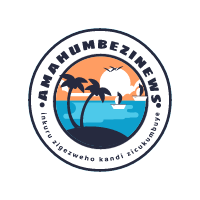SFH Rwanda: Trainings of partners on how cyberspace works and how it will work in their schools

CyberRwanda is a digital platform that aims to improve the health and livelihoods of urban and peri-urban adolescents (12-19 years) by supporting them at every step of their healthcare journey.
Co-designed with over 800 Rwandan youth, the CyberRwanda online platform and corresponding program includes narrative storylines, a robust FAQ library, and a youth-friendly pharmacy locator. For young people who do not have phone access, CyberRwanda is currently available on tablets in 60 schools across six districts and popular Youth Centers across the country.
The CyberRwanda program also includes gamified digital and in-person training for pharmacists at partnering health facilities that educate them on topics such as provider bias, youth access to health products, and voluntary FP/RH care. Using youth-driven design approaches, every aspect of CyberRwanda from the visual look and feel to the character names and FAQ content – was designed with input from over 800 young people and 200 parents, teachers, health care providers, and community leaders. This has helped ensure that the platform is not only fun and educational but also that the content, tone, and feel meet young people’s needs and are more impactful in addressing teen pregnancy and HIV prevention. All content has been reviewed, validated, and approved through the appropriate technical working groups within the Rwandan government.

CyberRwanda is a 6-year project (2018 – 2024) being implemented in Rwanda by YLabs in close partnership with Society for Family Health – Rwanda, with guidance from the Ministry of Health, Rwanda Biomedical Center, and the Rwanda Education Board. Our evaluation partners are the School of Public Health at the University of California, Berkeley, and the University of Rwanda. Other key partners include Rwandan Adolescent Health stakeholders who support our content development and help ensure that key messages are aligned with Rwanda’s existing national health priorities to decrease unplanned teen pregnancies and HIV infection. The project is currently being implemented in two phases,
We will be conducting a Randomized Controlled Trial (RCT) to assess the impact and cost-effectiveness of this comprehensive digital platform. A 3-arm cluster randomized controlled non-inferiority trial study will be conducted in 60 schools across six districts. The three arms are: A self-service model, where schools receive guidance on how to set up tablets in school libraries for individual use, A facilitated model, where schools receive training on organizing a formal school club dedicated to exploring CyberRwanda in a group setting, A control group of schools without CyberRwanda access, If our impact evaluation shows CyberRwanda to be successful, we will expand access to the platform. The second phase of the project will be national-scale implementation, using media, community events, and mass media marketing to promote the launch of the product.
The launch events in all 44 (including four pilot schools) implementation schools were organized and conducted by schools themselves with minimal supervision from the CyberRwanda team following the validation of the treatments and the scripts of the third season by the national Sexual and Reproductive Health Technical Working Group and youth, respectively, Season 3 scipts were developed by our content writer, reviewed with the donor-USAID and our Implementing partner SFH, and it is currently being illustrated, In a bid to increase schools’ ownership and support of the program, we held a reflection meeting with all head teachers from the 44 intervention schools and 8 district officials in charge of education. This meeting discussed among other topics, the implementation progress, challenges and ways of improvements ,cyberwanda started with 2 main activities including organizing and evaluating changes, creating cyberwanda clubs in differents schools.









